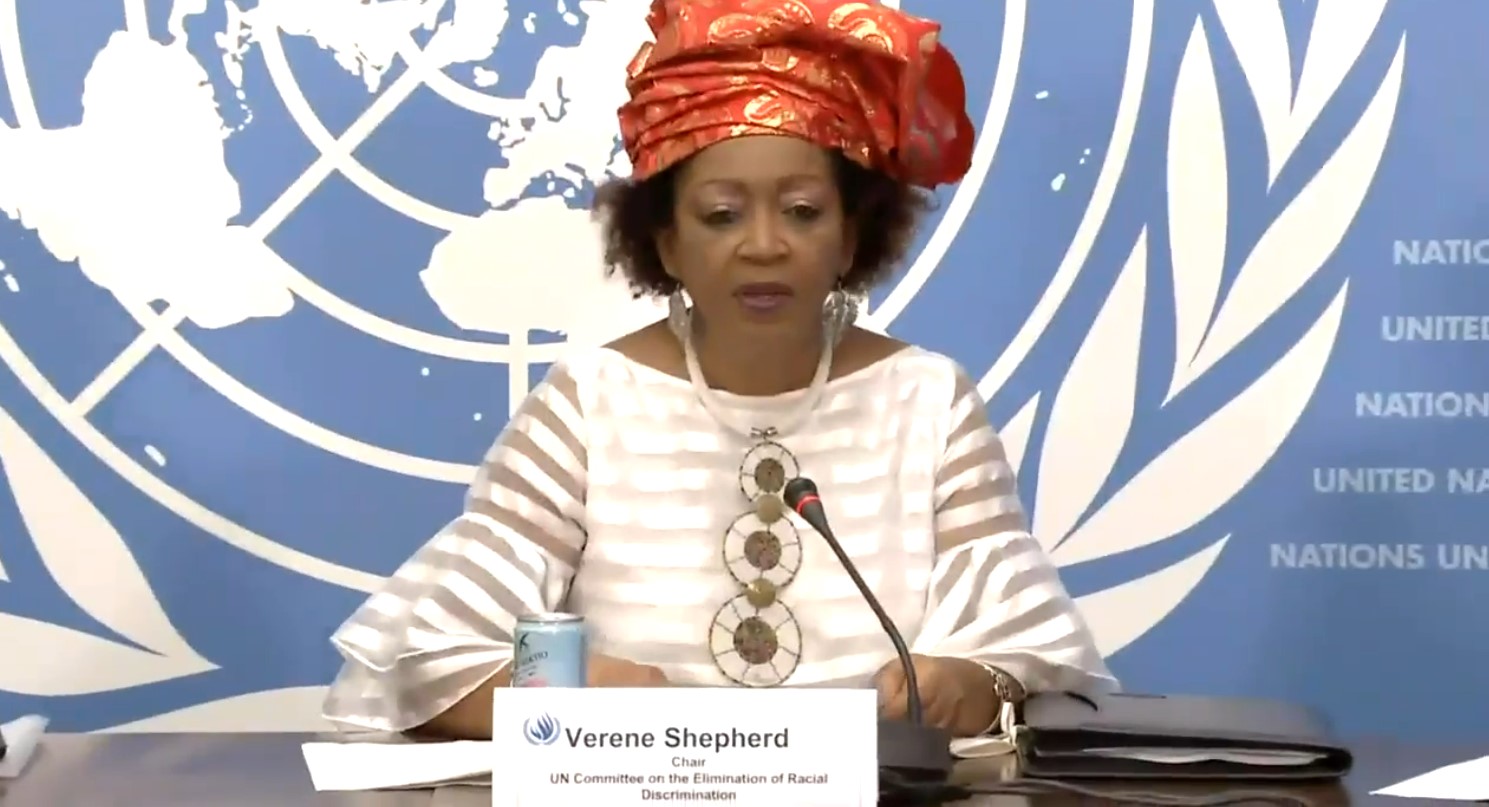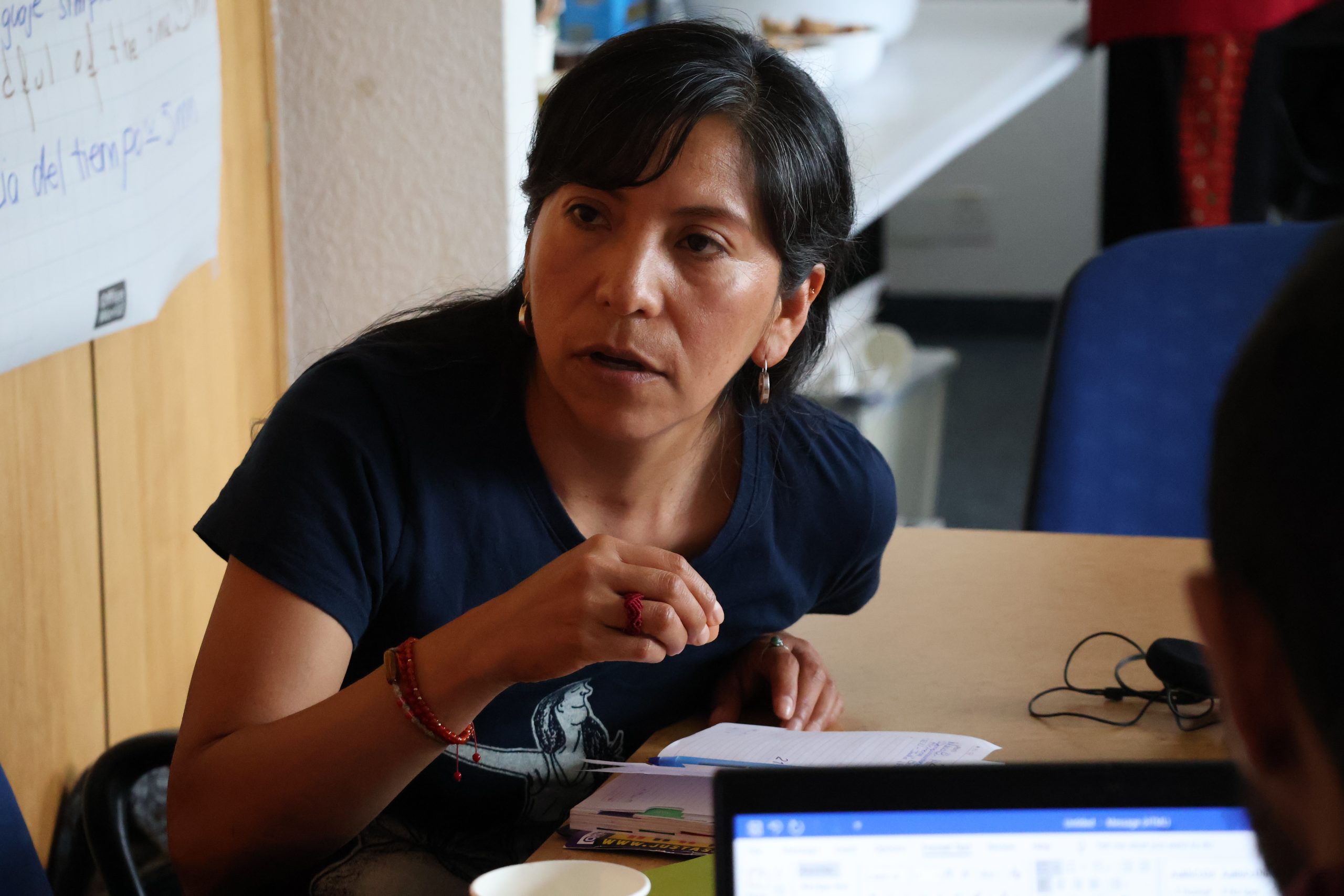
Egypt: Reform unjust vice laws, guarantee open civic space
During Egypt's UPR adoption at HRC59, Nora Noralla delivered a joint statement on behalf of ISHR, Cairo 52 and Middle East Democracy Center. Watch and read the full statement below.
UN Web TV

In landmark ruling, the UN’s committee on racial discrimination has strongly condemned China’s persecution of Uyghurs, and decided, for the first time ever, to refer the situation to the UN Secretary-General’s Special Adviser on the Responsibility to Protect. Reiterating the most serious concerns expressed by the UN’s Human Rights Office and UN independent experts, the committee reminded governments of their obligation to put an end to the most serious human rights violations wherever they occur, in particular racial discrimination.
The UN Committee on the Elimination of Racial Discrimination (CERD) released on 24 November 2022 a series of recommendations on the human rights situation in the Uyghur region (Xinjiang) under its ‘early warning and urgent action procedure.’ The adoption of such a document, known as a ‘decision’ and intended to prevent ‘full scale violations of human rights’, is uncommon – only two have been adopted over the past four years, the last in date in 2019.
While grounded in its own analysis arising from the 2018 review of China, the Committee additionally referred to existing documentation and evidence from across the UN system, namely a June 2020 joint statement by over 40 UN human rights experts; the International Labour Organization’s findings on forced labour of Uyghurs in June 2022; and the UN Office of the High Commissioner for Human Rights (OHCHR) assessment of human rights in Xinjiang. This last report, published on 31 August 2022, concluded that possible crimes against humanity had been committed in Xinjiang and that ‘the conditions remain in place for serious violations to continue and recur.’
The Committee urges China to implement the recommendations in the OHCHR assessment report, as well as to:
This is a decision of great importance from the committee: it reiterates the most pressing issues regarding the abuses against Uyghurs and Turkic people, including against the diaspora community. It is especially important that the responsibility of States to cooperate in ending these abuses is highlighted.Dolkun Isa, President of the World Uyghur Congress
The committee of 18 experts is mandated to monitor compliance with rights enshrined in the 1965 International Convention on the Elimination of All Forms of Racial Discrimination (ICERD) – the first of the UN’s nine ‘core’ international human rights treaties – by States that ratified it, which includes China. The CERD’s review of China in August 2018 was the first time UN experts sounded the alarm about the mass detention of Uyghurs, prompting grave and mounting concerns and action by governments worldwide ever since.
In their decision, the 18 committee experts remain ‘alarmed by allegations of torture, forced labour, sexual violence, arbitrary detention’ as well as ‘policies and practices leading to forced displacements, separation of families and the severing of human contacts’ that cause ‘particular suffering to affected Uyghur and other ethnic Muslim communities.’ They recalled the ‘discriminatory character’ of the ‘severe and undue restrictions on a wide range of human rights’ targeting Uyghurs and Muslim minorities.
The Committee gives particular attention to the Xinjiang Police Files, a database of thousands of leaked images, spreadsheets and other police documents that expose the ‘scale and nature of the Government’s policy towards Uyghurs.’
In light of the gravity of breaches of the ICERD, the Committee decided to refer the situation to the attention of the Secretary-General’s Special Adviser on the Responsibility to Protect, George Okoth-Obbo. Okoth-Obbo is tasked with leading the political and operational development of the Responsibility to Protect, a global political commitment to prevent and halt genocide, crimes against humanity and war crimes. It is the first time the Committee refers a matter to the attention of the UN Office on Genocide Prevention and the Responsibility to Protect, which Okoth-Obbo belongs to.
We particularly welcome the committee’s referral to the Special Advisor on the Responsibility to Protect to assess the situation through an atrocity prevention framework, and urge governments to respond accordingly.Peter Irwin, Senior Program Officer for Advocacy and Communications at the Uyghur Human Rights Project
Since 2018, detailed evidence and repeated calls to action across the UN system have prompted a growing number of States to take collective action on grave rights violations in the Uyghur region, and China more broadly. In September, the Human Rights Council failed by a thin margin of three votes to adopt a resolution convening a global debate on human rights in Xinjiang.
On 31 October, 50 governments led by Canada endorsed the UN’s Xinjiang report as an ‘independent, authoritative assessment’ and urged China to implement its recommendations, in a joint statement to the UN General Assembly. The 50 countries also echoed the call to ‘release all individuals arbitrarily detained’ and ‘clarify the fate and whereabouts of missing relatives and facilitate safe contact and reunion.’ Similar statements have been delivered by France on behalf of 43 countries in October 2021, and by the Netherlands on behalf of 47 countries at the Human Rights Council in June this year. Canada’s call, widely endorsed by Western governments, has notably been joined by Muslim countries Türkiye, Somalia and Albania, and a handful of African, Latin American and Pacific States.
There is no excuse for governments to ‘stay neutral’ anymore: the UN Human Rights Office has spoken, 50 UN independent experts have spoken, the UN’s expert committee on racial discrimination has spoken. Governments must not only support global action to put an end to violations, but also protect Uyghur victims and activists abroad from harassment and reprisals.Phil Lynch, ISHR's Executive Director
The CERD’s decision further increases pressure on the international community to bring about a response commensurate to the gravity of rights violations affecting the Uyghur people. The 18 experts notably ‘remind all States of their responsibility to cooperate to bring to an end through lawful means any serious breach of human rights obligations’ as provided under international law. Serious breaches involve the gross or systematic violations of peremptory norms of international law – those that do not derogation under any circumstances –, such as the prohibition of racial discrimination, the prohibition of torture, or the prohibition of slavery.
The committee takes a step further by underscoring that governments not only have a moral obligation, but also a legal duty to act to prevent and protect vulnerable populations against massive human rights violations - in this case, to put an end to the persecution of Uyghurs and other Turkic Muslims.Raphael Viana David, ISHR’s China and Latin America Advocate
Governments also have a duty to protect the rights of Uyghurs and other exiled victims and activists on their soil from new forms of transnational repression. The CERD indeed remains ‘alarmed by alleged patterns of intimidation and threats against members of the diaspora communities and those speaking publicly.’
According to an assessment of UN documentation compiled by ISHR, the human rights situation in China meets a threshold requiring prompt action by the Human Rights Council.
In light with objective criteria for action by the Human Rights Council, ISHR calls on:

During Egypt's UPR adoption at HRC59, Nora Noralla delivered a joint statement on behalf of ISHR, Cairo 52 and Middle East Democracy Center. Watch and read the full statement below.

At the Human Rights Council, Belgium delivered a statement on behalf of over 60 States that 'pays tribute to the numerous achievements and meaningful progress made by women and girls human rights defenders, and emphasises the continued need for their voices to be heard and supported'.

The 59th session of the UN Human Rights Council (16 June to 9 July 2025) will consider issues including civil society space, climate change, sexual orientation and gender identity, violence and discrimination against women and girls, poverty, peaceful assembly and association, and freedom of expression, among others. It will also present an opportunity to address grave human rights situations including in Afghanistan, Belarus, China, Eritrea, Israel and oPt, Sudan, Syria and Venezuela, among many others. Here’s an overview of some of the key issues on the agenda.